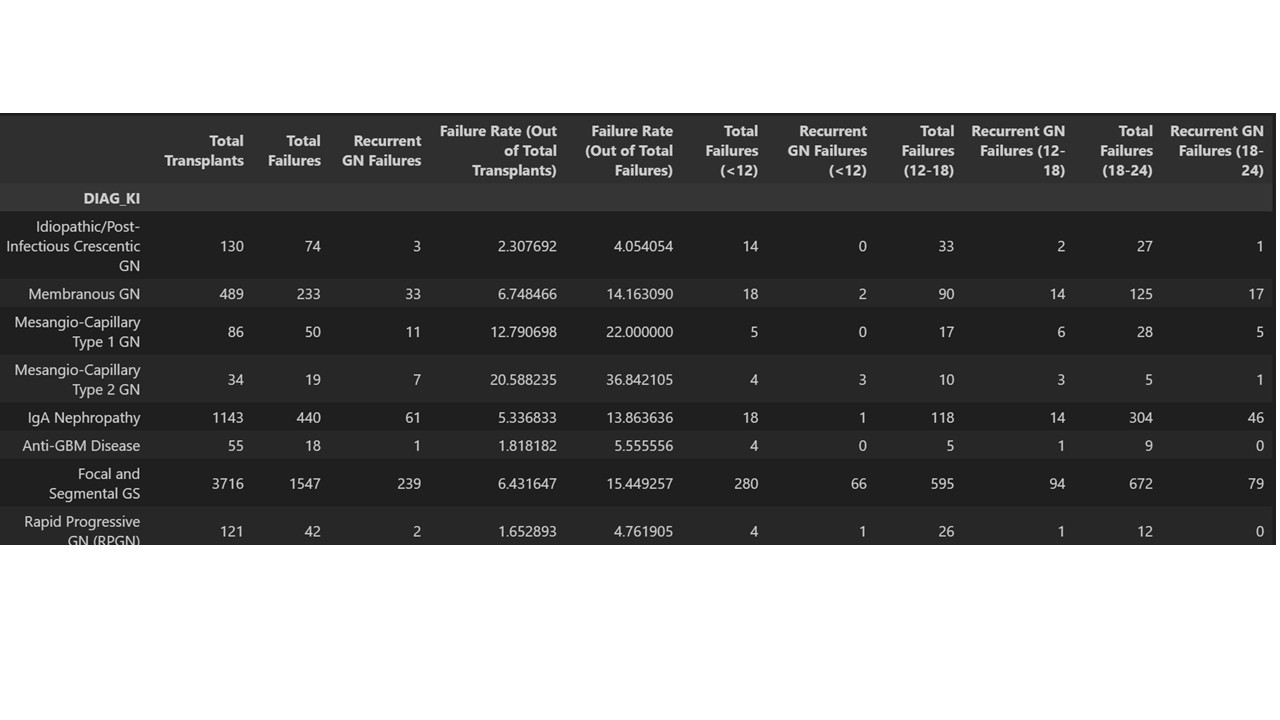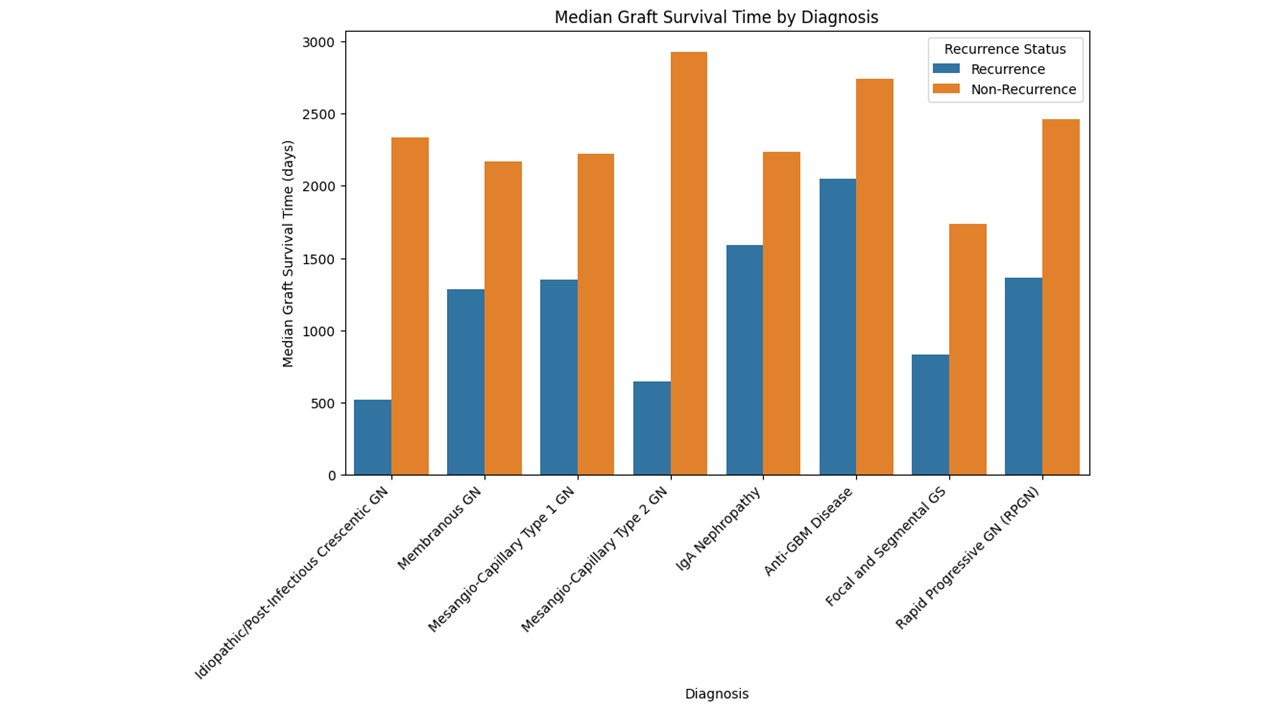Evaluating recurrent glomerulonephritis in kidney transplantation
Zachary Oatley1, Rupesh Raina2,3, Jieji Hu3, Priya S Verghese4.
1College of Medicine, Northeast Ohio Medical University, Rootstown, OH, United States; 2Department of Pediatric Nephrology, Akron Children's Hospital, Akron , OH, United States; 3Department of Nephrology, Akron Nephrology Associates at Cleveland Clinic Akron General Medical Center, Akron, OH, United States; 4Northwestern University, Feinberg School of Medicine, Chicago, IL, United States
Introduction: Recurrent glomerulonephritis is increasingly recognized as a significant contributor to premature renal allograft failure, with its incidence varying depending on the underlying disease, biopsy practices, and observation period. Glomerulonephritis accounts for allograft failure in up to 20% of kidney transplant recipients, with recurrence risks differing based on the type of primary glomerular disease and influenced by factors such as observation duration and biopsy thresholds. We aimed to assess the impact and descriptors of recurrent glomerular disease on overall graft survival rate.
Methods: Data pertaining to kidney transplants in patients <24 years old from the United States from 2000 to 2024 were obtained from the United Network for Organ Sharing database.
Results: In the patients analyzed, recurrent glomerulonephritis made up 14.7% of total graft failures. Recurrence rates for other types were: Focal Segmental Glomerulosclerosis (15.4%), Mesangio-Capillary Type 1 GN (12.8%), Membranous GN (6.8%), IgA Nephropathy (5.3%), Idiopathic/Post-Infectious Crescentic GN (2.3%), Anti-GBM Disease (1.8%), Rapid Progressive GN (1.7%).

Demographic differences and temporal trends were analyzed between patients with recurrence related graft failure compared with other causes of failure. Patients with graft failure due to recurrent glomerulonephritis had a significantly lower median graft survival time (1072.0 vs. 1944.0 days, p = 3.4896e-18). Patients < 12 years old had a significantly higher recurrence rate of 21.0% (p=0.00047). Graft failure due to recurrence was particularly premature in Mesangio-Capillary Type II GN (644.0 vs. 2930.0 days) compared to other causes.

There were no significant associations with gender, ethnicity, or transplant date.
Conclusion: Recurrent glomerulonephritis is a significant cause of premature graft failure, particularly in patients with Type 2 Mesangio-Capillary Glomerulonephritis, the most common disease to recur with the shortest time to graft failure. Large-scale collaborative efforts to study the impact of recurrent glomerular disease in patients with chronic allograft dysfunction could help identify successful preventative strategies with potential for significant improvement in graft survival time and overall patient outcomes.
References:
[1] allograft survival
[2] Recurrent glomerulonephritis
[3] Kidney transplant
Lectures by Zachary Oatley
| When | Session | Talk Title | Room |
|---|---|---|---|
|
Fri-19 13:35 - 15:05 |
Improving survival following pediatric kidney transplant | Tolerating Unfavorable Donor Criteria in Pediatric Kidney Transplantation: A Retrospective UNOS Analysis | MOA 6 |
|
Thu-18 17:00 - 18:00 |
Kidney Posters - from P1.1 to P1.32 | Evaluating Recurrent Glomerulonephritis in Kidney Transplantation | MOA 10 (Exhibit Area) |
